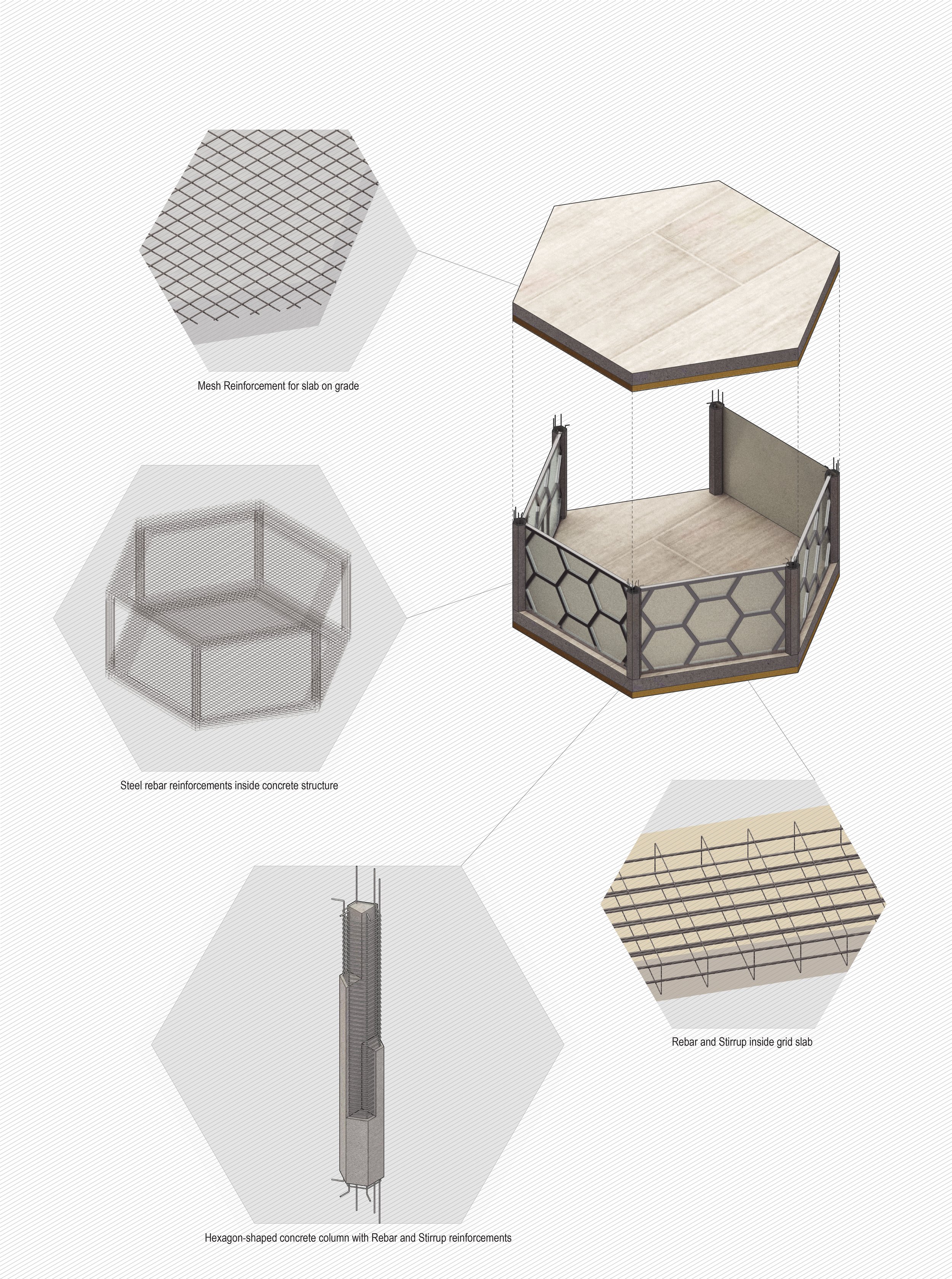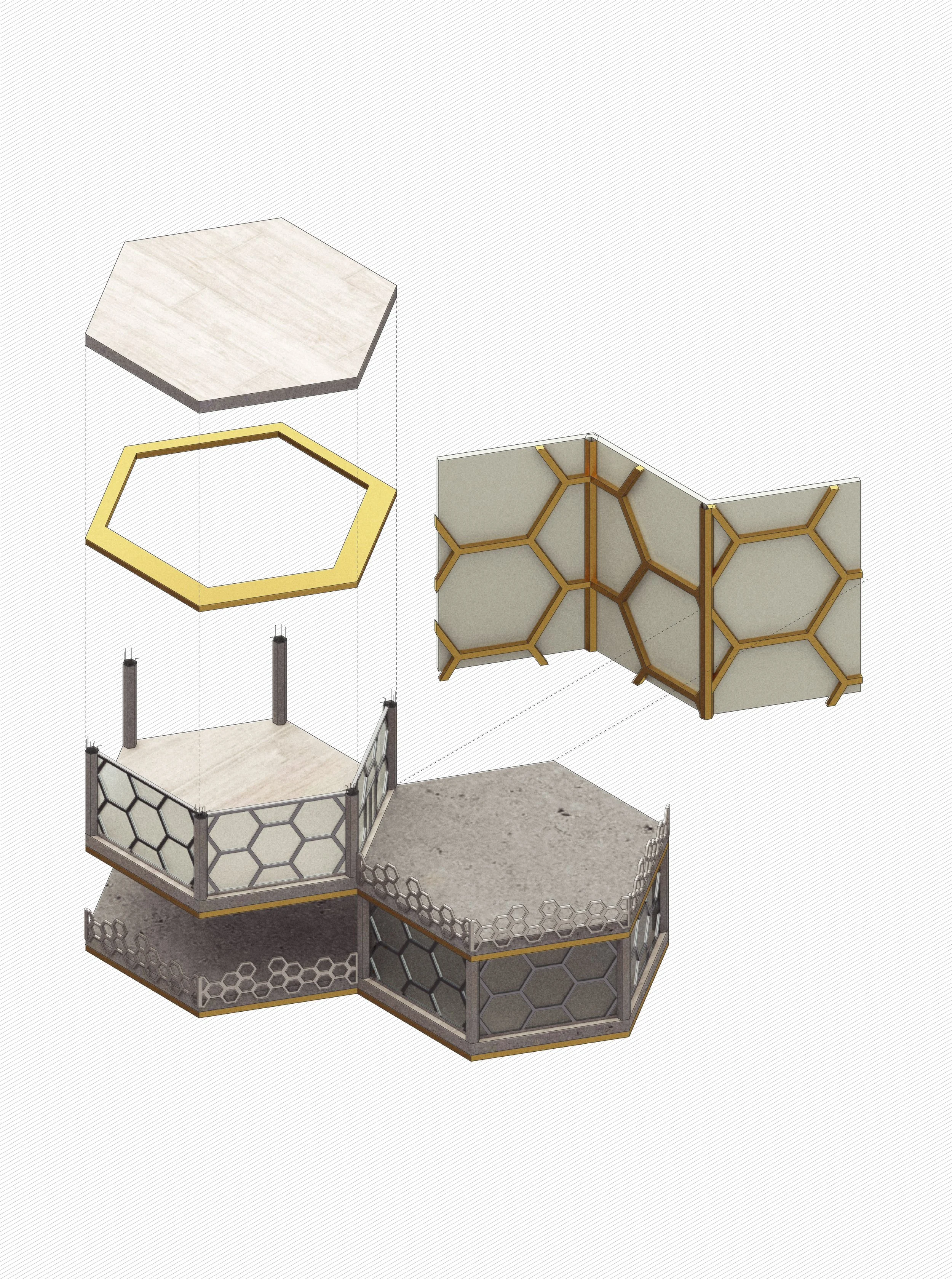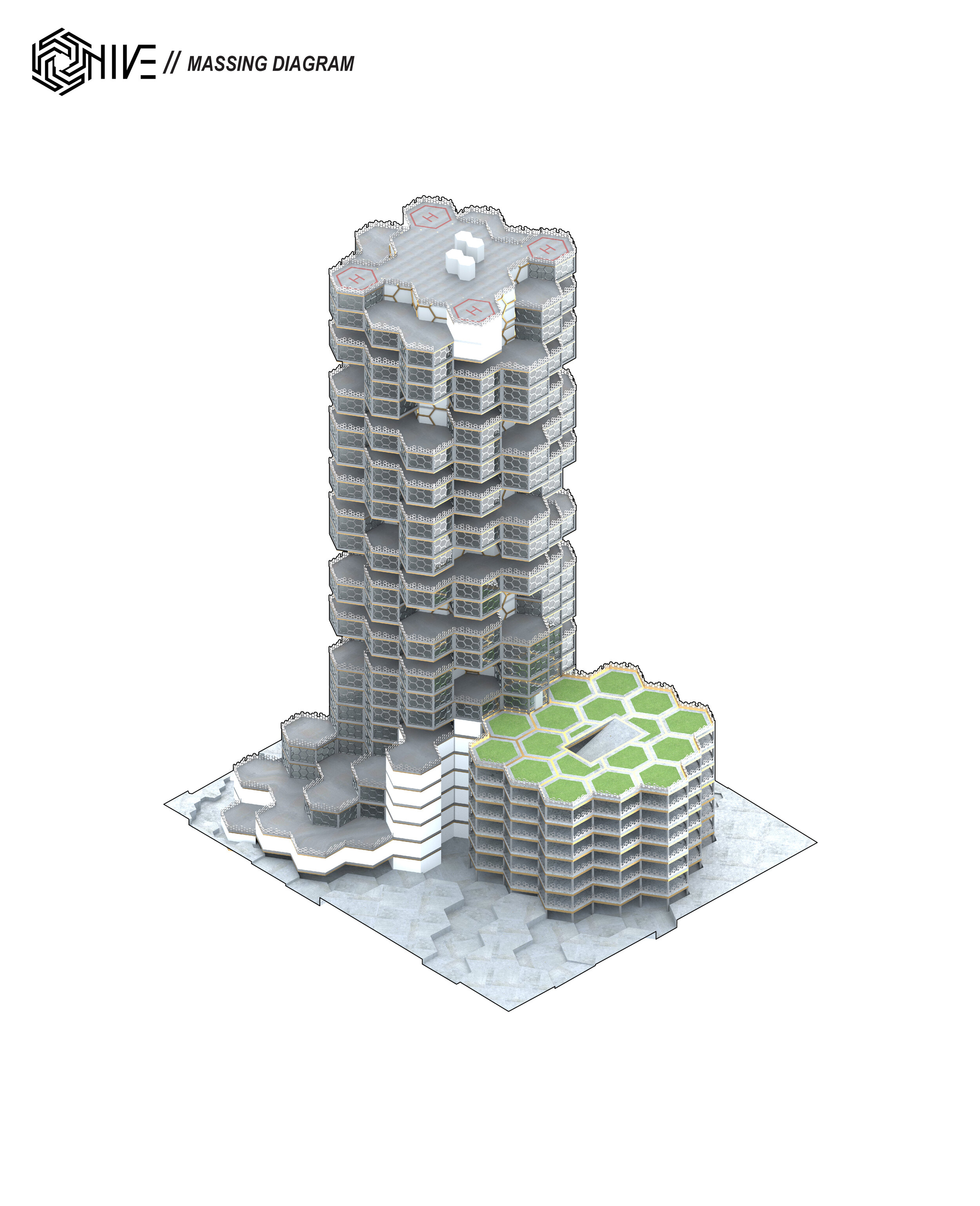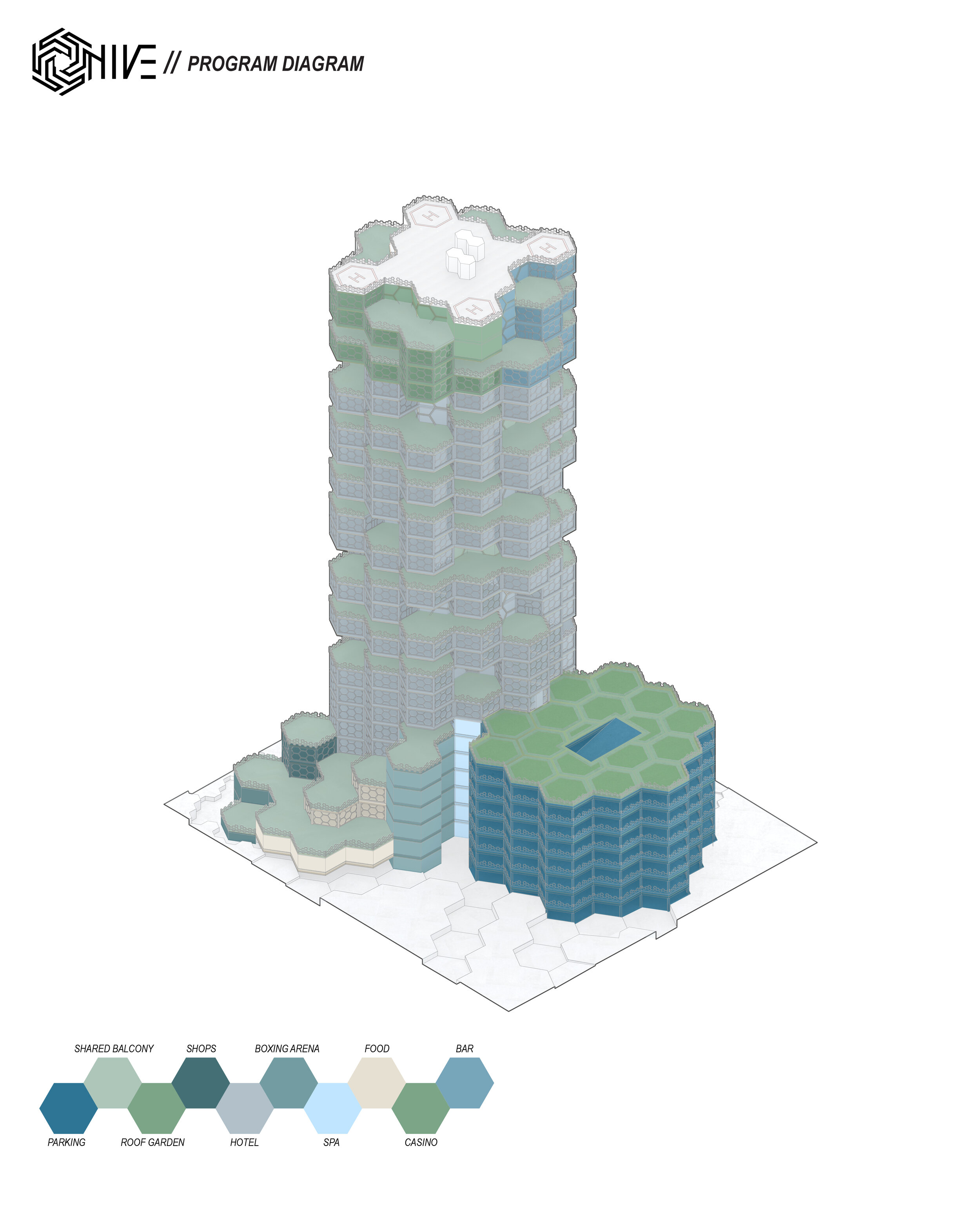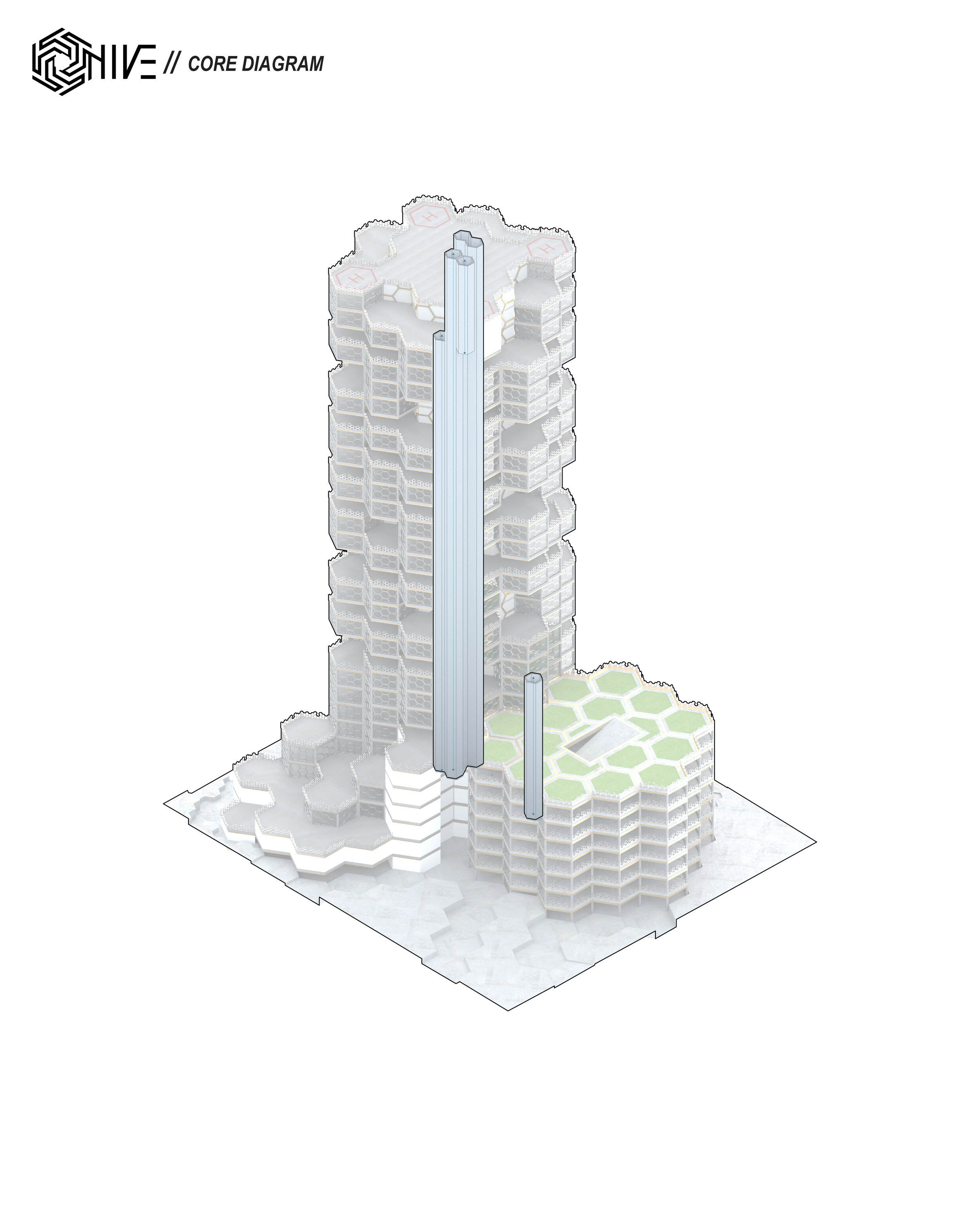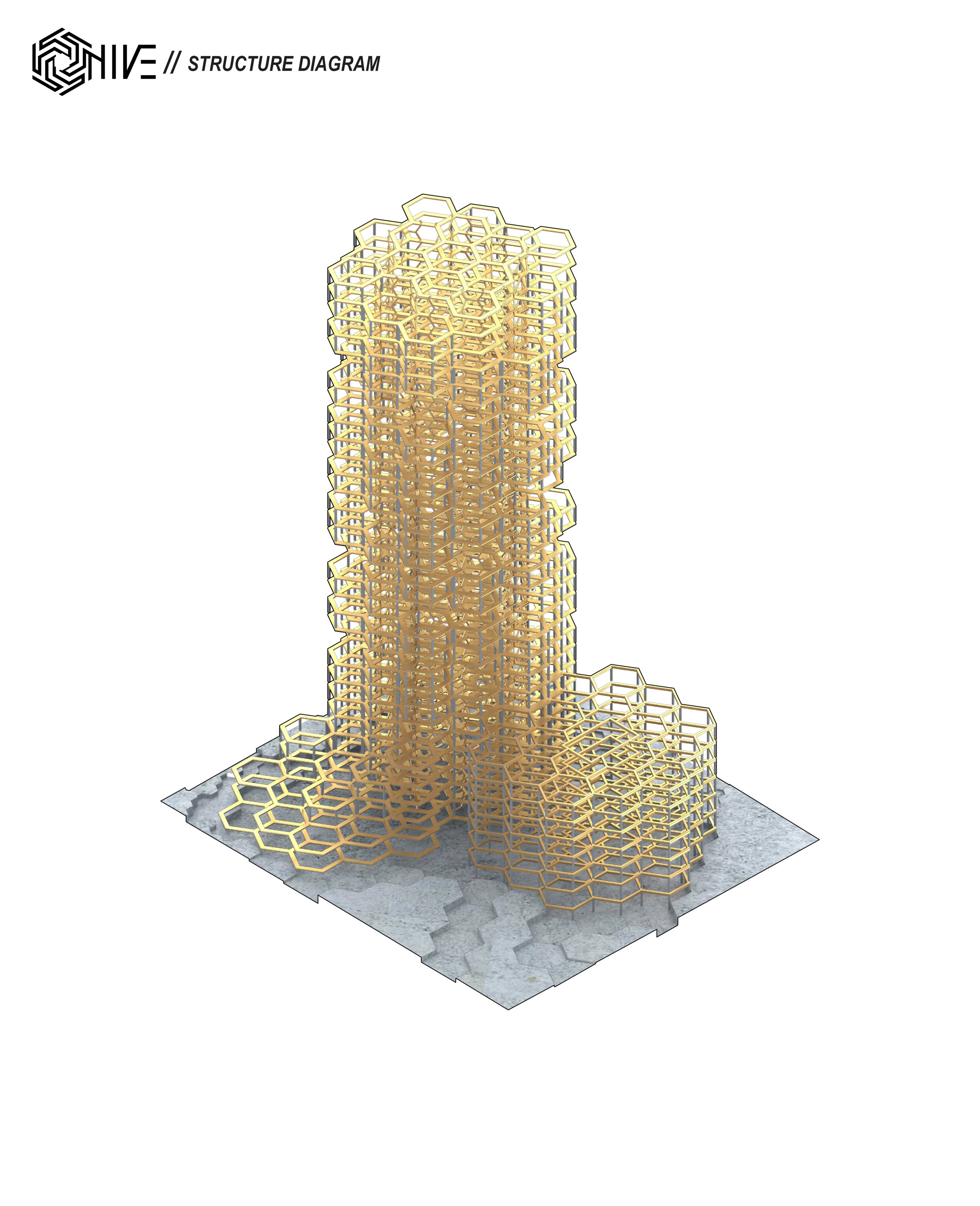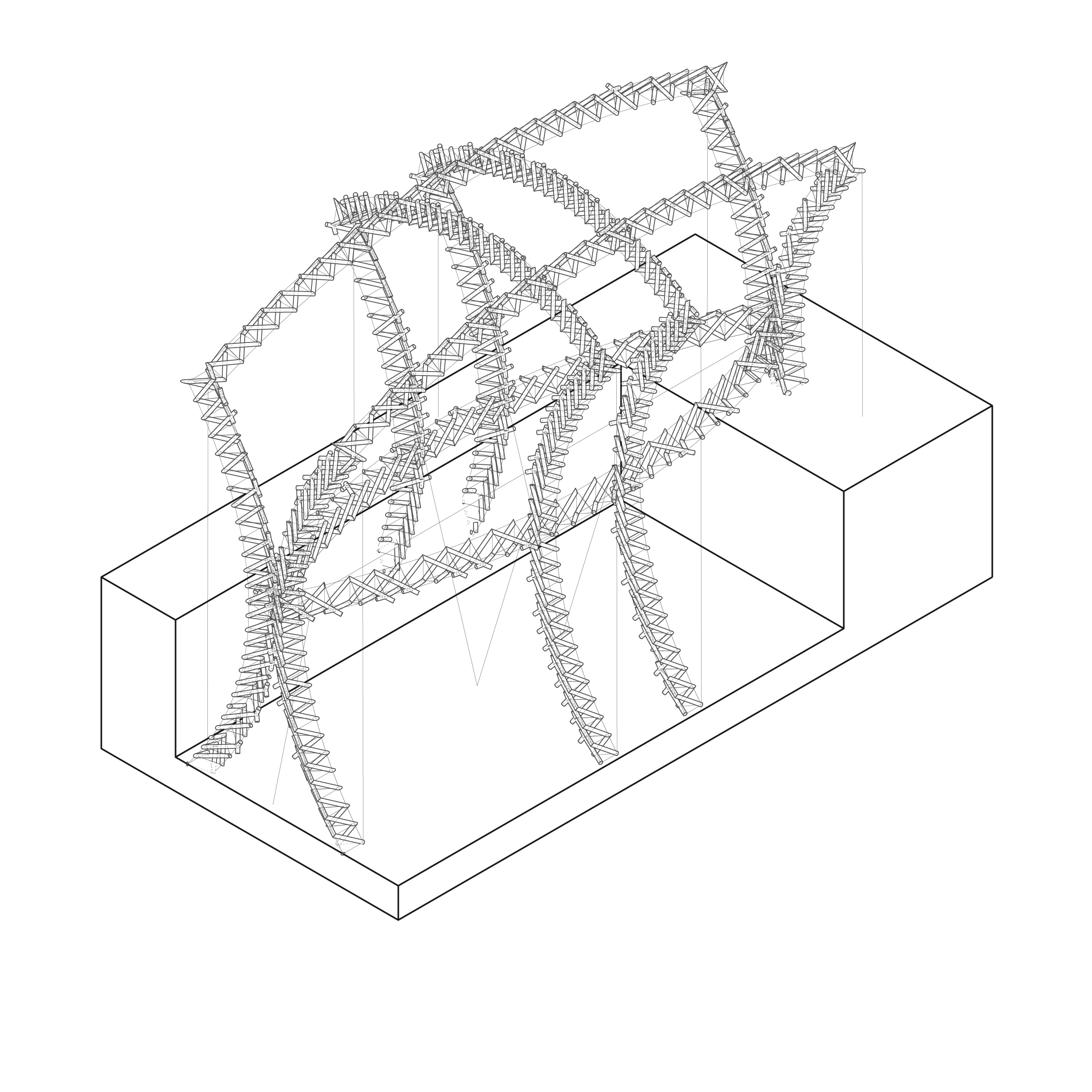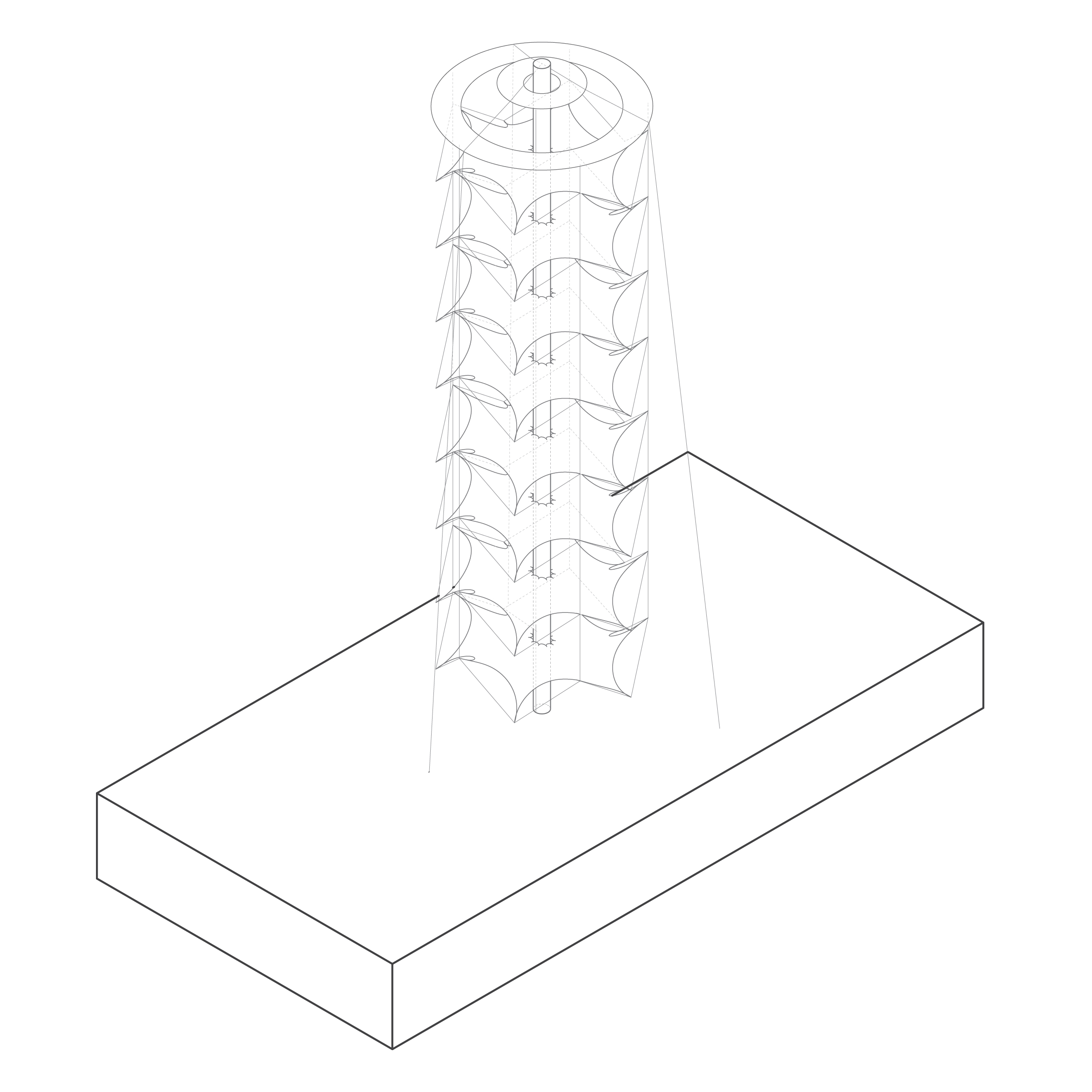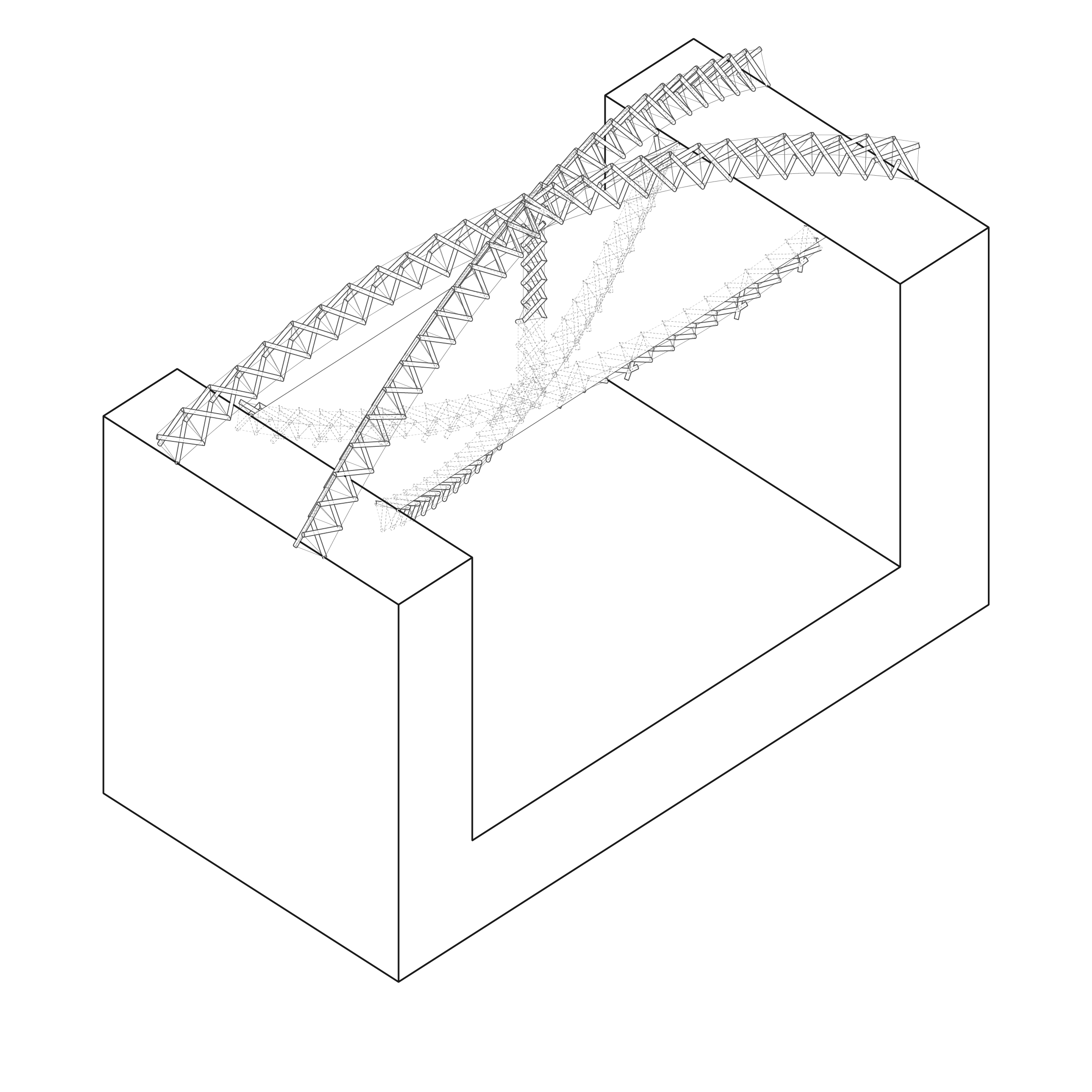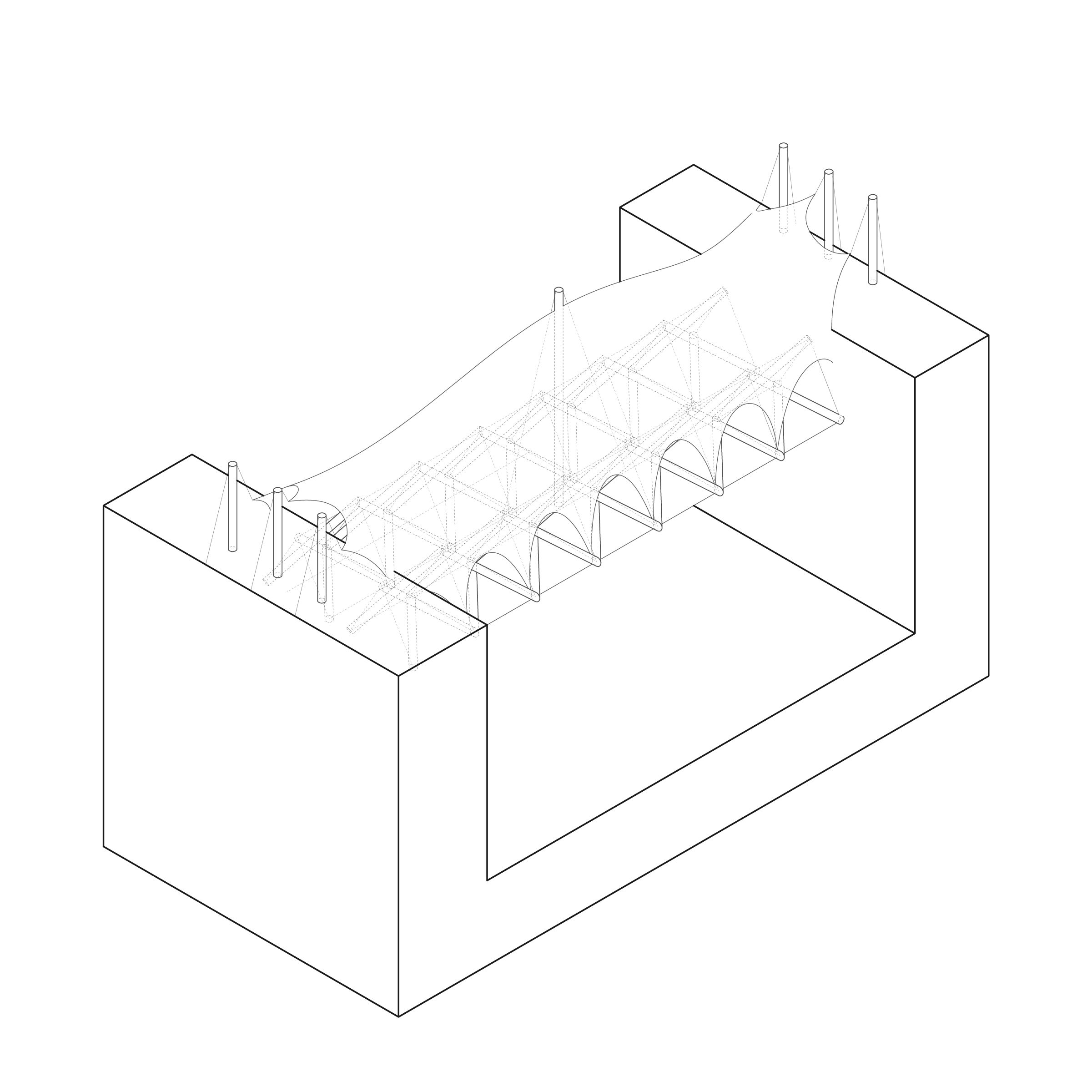STUDIO 3B
Instructor: Stephen Marshall / Spring 2019 / Woodbury University
Structure, technology, building systems and codes are explored as design determinants, space makers, and form-givers, in this synthesis studio. Building typologies, long span structural systems and electronic media are analyzed as they relate to design development.
THE HIVE / Partnership w/ rita midourian
The Hive is a 30-story concrete entertainment hub located on the new expansion of the Metro line in the center of Downtown Los Angeles. The Hive being on the intersection of Broadway and 2nd Street offers a transportation hub underground while aiming to revive the nightlife in Downtown Los Angeles. The restoration of nightlife will come to life by offering programs to represent the seven deadly sins: Pride (Nightclub), Greed (Casino), Lust (Hotel), Envy (Shops), Gluttony (Buffet), Wrath (Boxing Arena), and Sloth (Spa). The Hive organizes the programs in hexagonal pods rotating around the central core to create an atrium hotel with various platforms. The tower influenced by the hexagonal shape will embody it through the hexagonal grid slab, hexagonal diagrid, and various decorative elements to mimic the buzz it will cause once it is erected.
Exterior Render
Subway Render
Elevation
Section
Level 9 Plan
Level 30 Plan
Fragment Detail of Hexagonal Pod
Fragment drawing of Structural Elements
conceptual precedents + tectonic ABSTRACTIONS
Students will conduct a formal analysis on a specified structural term (tensegrity) and produce three precedent drawings. Then students will be asked to produce alterations to further expand the students’s knowledge of the specified term.
Munich Olympic Stadium / Frei Otto
Kurilpa Bridge / Cox Rayner Architects
Torre Antena Santiago / Smiljan Radic
Aggregations + adaptations + Transformations
Students will formulate complex strategies to deploy their structures in the context of a given abstract site condition. The structure’s response to three different abstract sites will require students to develop alternative interpretations, transformations, adaptations and aggregations unique to each situation.







